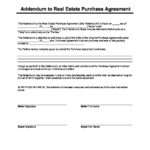POA in Real Estate: Understanding Power of Attorney in Property Transactions

What does POA stand for in real estate?
In real estate, POA stand for power of attorney. This legal document grants someone (know as the agent or attorney in fact) the authority to act on behalf of another person (the principal) in property transactions and related matters. Understand how a POA works is crucial for anyone involve in real estate transactions where direct participation might not be possible.
Types of power of attorney in real estate
Different situations call for different types of POA documents. Each type grant specific powers and have distinct limitations that real estate professionals and property owners should understand.
General power of attorney
A general POA give your agent broad powers to handle most all your legal and financial affairs, include real estate transactions. This comprehensive authority allows your agent to:
- Buy or sell property on your behalf
- Manage rental properties
- Sign legal documents relate to real estate
- Pay property taxes and insurance
- Handle mortgage applications or modifications
This type of POA typically terminate if you become incapacitate, which is an important limitation to consider in your planning.
Limited power of attorney
A limited POA (tto callspecial poPOA)estrict your agent’s authority to specific real estate transactions or time periods. For example, you might grant a limited poaPOA:
- Sell a specific property while your travel overseas
- Handle a single closing when you can’t attend in person
- Manage a property for a define period
This targeted approach provide protection while ensure necessary transactions can proceed in your absence.
Durable power of attorney
A durable POA contains specific language that allow it to remain in effect yet if you become incapacitate. For real estate purposes, this mean your agent can continue manage your property matters if you’re unable to do hence due to illness or injury. This type is specially valuable for:
- Long term property management planning
- Ensure continuity in investment property operations
- Protect real estate assets during health emergencies
Springing power of attorney
A springing POA solely takes effect when a specific eventoccursr, typically the principal’s incapacity. This document must clear define what constitute incapacity, oftentimes require physician certification. In real estate, a springinPOAoprovidesde peace of mind that someone can manage your properties solitary when you’re sincerely unable to do thus yourself.
Key components of a real estate POA
For a POA to be effective for real estate transactions, it must contain several essential elements:
Clear identification of parties
The document must clear identify both the principal (property owner )and the agent ( (torney in fact ).)ull legal names should be use,usedong with addresses and contact information to prevent any confusion about who has authority to act.
Specific powers grant
A real estate POA should explicitly outline what powers the agent has regard property matters. These might include:
- Authority to list property for sale
- Power to negotiate purchase or sale terms
- Ability to sign closing documents
- Permission to manage rental properties
- Authorization to handle property taxes
Property description
For limited POWs particularly, the document should include a detailed description of the property or properties involve. This typically include the legal description, property address, and parcel number to avoid any ambiguity about which real estate assets are cover.
Effective dates and termination
The POA should understandably state when the powers begin and end. This might be:
- A specific date range (e.g., during an overseas trip )
- Until a particular transaction is complete
- Until revoke by the principal
- Upon the principal’s incapacitation (for nnon-durablepPOWs)
Notarization requirements
For real estate transactions, a POA must typically be notarized to be lawfully valid. Some states besides require witnesses. The document may need to be record with the county recorder’s office where the property is located before it can beusede for transactions.

Source: sunnyavenue.co.uk
When to use a POA in real estate
Several common situations call for the use of a power of attorney in real estate:
Military deployment
Service members deploy abroad oftentimes use POWs to allow spouses or family members to handle property matters during their absence. This might include purchase a new home, sell exist property, or manage rental units.
Live overseas
Investors or property owners live in another country often establish POWs to ensure their u.s. real estate interests can be manage without require international travel for every transaction or decision.
Health issues
Individuals face significant health challenges or upcoming medical procedures might create a POA to ensure property matters can be handled during recovery periods or if complications arise.
Busy professionals
High level executives, frequent travelers, or those with demand schedules sometimes use limited POWs to delegate specific real estate closings or transactions they can not attend personally.
Elderly property owners
Age property owners oftentimes establish durable POWs as part of their estate planning to ensure trust family members can manage their real estate affairs if they become unable to do indeed themselves.

Source: readysteadysell.co.uk
Legal requirements for real estate POWs
Power of attorney documents must meet specific legal requirements to be valid for real estate transactions:
State specific regulations
POA requirements vary by state, with significant differences in:
- Require language and format
- Witness requirements
- Recording procedures
- Durability provisions
Ever consult state specific guidelines or a local attorney when create a real estate POA.
Recording requirements
In most jurisdictions, a POA use for real estate transactions must be record with the county recorder’s office where the property is located. This typically involve:
- Submit the original notarized document
- Pay a recording fee
- Meet county specific formatting requirements
The recording create a public record of the agent’s authority to act on real estate matters.
Lender specific requirements
Mortgage lenders oftentimes have additional requirements for accept POWs in loan transactions:
- Some require their own POA forms
- Many have recency requirements (pPOAexecute within 30 60 days )
- Some transactions may require principal capacity certification
- Certain lenders restrict which closing documents can be sign via POA
Risks and limitations of POWs in real estate
While POWs are valuable tools, they come with important risks and limitations:
Potential for abuse
The broad powers grant by a POA creates potential for misuse. Agents might:
- Sell property below market value
- Transfer property to themselves unsuitably
- Take out loans against property without proper justification
- Mismanage rental income or property maintenance funds
These risks make careful agent selection crucial.
Title company restrictions
Many title companies have policies limit POA use in closings due to fraud concerns. They may:
- Require recent POWs (execute within 60 90 days )
- Conduct additional verification of the principal’s intent
- Restrict use for certain high value transactions
- Require principal capacity certification from physicians
Third party acceptance issues
Flush with a lawfully valid POA, some parties in real estate transactions may be reluctant to accept them:
- Banks may require their own POA forms for mortgage transactions
- Insurance companies might request additional verification
- Homeowners associations could have specific POA policies
Invariably verify acceptance policies before rely on a POA for critical transactions.
Create an effective real estate POA
To create a robust POA for real estate purposes, follow these best practices:
Consult with an attorney
While DIY POA forms exist, real estate transactions involve significant assets that warrant professional guidance. An attorney can:
- Ensure state specific requirements are meet
- Tailor powers to your specific needs
- Include appropriate safeguards against abuse
- Advise on recording requirements
Choose your agent cautiously
The person you select as your agent should be:
- Trustworthy and financially responsible
- Knowledgeable about real estate (or willing to consult experts )
- Available to handle matters when need
- Comfortable with the responsibility
- Geographically accessible to the property if possible
Be specific about powers
Understandably define what your agent can and can not do regard your real estate. Consider include:
- Minimum sale prices for properties
- Restrictions on transfer property to the agent themselves
- Requirements for professional property appraisals
- Report requirements for financial transactions
Consider multiple agents
Some property owners appoint:
- Co agents who must act collectively on major decisions
- Different agents for different properties
- Successor agents if the primary agent become unavailable
These approaches provide additional oversight and continuity.
Revoke a real estate POA
Circumstances change, and you may need to terminate a POA. The revocation process typically involves:
Create a revocation document
Draft a formal revocation statement that:
- Identify the original POA by date and parties
- Clear state your intention to revoke all powers
- Include the effective date of revocation
- Contain your signature
Notify relevant parties
Provide copies of the revocation to:
- The agent name in the original POA
- Financial institutions where the POA was use
- County recorder’s offices where the POA was record
- Any third parties who might have relied on thPOAoa
Record the revocation
For real estate matters, the revocation should be record in the same county offices where the original POA was file. This creates a public record that the agent no hanker have authority to act regard your property.
Alternatives to POA for real estate matters
In some situations, alternative to a traditional POA might advantageously serve your needs:
Real estate trusts
Create a trust for your real estate allow a trustee to manage properties accord to your instructions. Benefits include:
- Continuous management yet if you become incapacitate
- Potential probate avoidance
- More detailed control through trust provisions
- Privacy advantages over record POWs
Property management companies
For rental or investment properties, professional management companies can handle day to day operations without need broad POA authority. This approach:
- Limits authority to specific management functions
- Provide professional expertise
- Oftentimes include build in oversight and report
Entity ownership
Place properties in a lLLCor corporation with multiple authorized representatives can achieve similar goals to a pPOAwhile provide:
- Liability protection
- Clearer succession planning
- Potentially favorable tax treatment
Conclusion
A power of attorney is a versatile and powerful tool in real estate transactions, allow property matters to proceed eventide when the owner can not personally participate. Whether your travel overseas, face health challenges, or merely plan for future contingencies, a decent draft real estate poPOArovide peace of mind and practical solutions.
Understand the different types of POWs, their legal requirements, and potential limitations help property owners make informed decisions about when and how to use these documents. With careful planning, appropriate safeguards, and regular reviews, a POA can be an invaluable component of your real estate and estate planning strategy.
Remember that state laws vary importantly regard POA requirements, peculiarly for real estate transactions. Invariably consult with a qualified attorney in your jurisdiction to ensure your power of attorney meet all legal requirements and efficaciously serve your specific needs.






